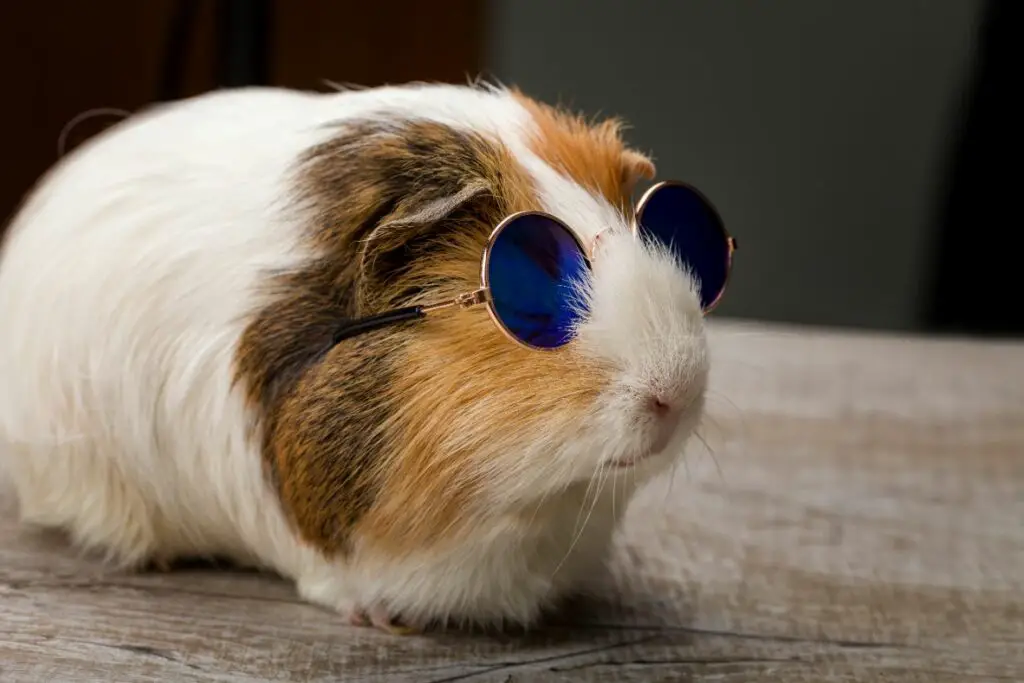Guinea pigs are popular pets due to their adorable appearance, playful nature, and social behavior. They are also known for their long lifespan, which can span up to seven years or even longer with proper care.
As with any living creature, guinea pigs undergo physical and behavioral changes as they age, and may require special care to maintain their health and well-being.

Understanding the Aging Process in Guinea Pigs
As guinea pigs age, they undergo a range of physical and behavioral changes. Some of the most common changes include:
Physical Changes
- Loss of muscle mass and flexibility
- Decreased mobility and activity levels
- Development of lumps or bumps on the skin
- Changes in dental health, such as overgrown teeth or tooth loss
- Inability to regulate body temperature
Behavioral Changes
- Changes in appetite, often due to dental issues or digestive problems
- Decreased interest in social interaction or play
- Inability to groom themselves properly
- Increased sleeping or resting time
- Changes in vocalizations or communication
Common Health Issues in Senior Guinea Pigs
Older guinea pigs are more prone to a range of health issues, including:
- Dental problems
- Arthritis
- Heart disease
- Tumors or cysts
- Respiratory infections
- Urinary tract infections
How to Care for Your Senior Guinea Pig
Fortunately, with proper care and attention, many of the health issues that affect senior guinea pigs can be prevented or managed. Here are some tips for caring for your senior guinea pig:
Dietary Needs and Changes
As guinea pigs age, their dietary needs may change. They may require a diet that is higher in fiber and lower in fat and sugar to maintain healthy digestion and prevent obesity. You can provide your senior guinea pig with a variety of fresh vegetables, hay, and a small amount of high-quality guinea pig pellets. Make sure to provide fresh water at all times and monitor your pet’s food intake to ensure they are maintaining a healthy weight.
Providing Comfortable Living Conditions
Senior guinea pigs may require modifications to their living environment to ensure they are comfortable and safe. Make sure their living space is clean, spacious, and free from hazards. Provide soft and comfortable bedding and ensure that their enclosure is warm and draft-free. You may also need to provide additional support for your senior guinea pig, such as ramps or stairs to help them get around.
Exercise and Enrichment
Although senior guinea pigs may be less active than their younger counterparts, they still require regular exercise and mental stimulation. Provide your pet with toys, puzzles, and other enrichment activities to keep them engaged and entertained. You can also provide a small amount of supervised exercise each day, such as allowing them to explore a safe and enclosed area outside of their enclosure.
Regular Veterinary Check-Ups
Regular veterinary check-ups are essential for maintaining the health and well-being of your senior guinea pig. Your veterinarian can provide guidance on proper nutrition, monitor your pet’s weight and dental health, and identify any potential health issues before they become serious. Make sure to schedule regular check-ups and follow your veterinarian’s recommendations for care.
Special Considerations for Dealing with End-of-Life Care
As your guinea pig approaches the end of their life, it’s important to approach their care with compassion and sensitivity. Consider the following tips:
Knowing When to Say Goodbye
It can be difficult to determine when it’s time to say goodbye to your beloved pet. Look for signs that your guinea pig is in pain or discomfort, such as decreased mobility, labored breathing, or lack of interest in food or water. Consult with your veterinarian to determine the best course of action, and be prepared to make the difficult decision to euthanize if necessary.
Compassionate End-of-Life Care
If your guinea pig is approaching the end of their life, you can provide compassionate care to help them feel comfortable and loved. Provide soft and comfortable bedding, keep them warm and cozy, and offer small amounts of their favorite foods. Spend time with your pet, providing comfort and affection, and consider consulting with a veterinary hospice or palliative care team to ensure your pet’s comfort and well-being.
Grieving and Coping with the Loss of Your Beloved Pet
Losing a pet can be a difficult and emotional experience. Take time to grieve and process your feelings, and consider seeking support from friends, family, or a professional counselor. Remember the happy times you shared with your pet and be grateful for the love and joy they brought to your life.
Conclusion
Caring for a senior guinea pig requires attention, patience, and compassion. By understanding the changes that occur as your pet ages and providing proper care and attention, you can ensure that your senior guinea pig enjoys a comfortable, happy, and healthy life in their later years.
Always remember, your pet’s quality of life is your top priority!
- How Long Do American Eskimo Dogs Live? Important Factors and Care Tips - September 29, 2023
- Do American Bulldogs Need Grooming? Essential Tips and Care Guidelines - September 29, 2023
- Do Bengal Cats Enjoy Playing? Essential Tips for Keeping Them Active - September 29, 2023